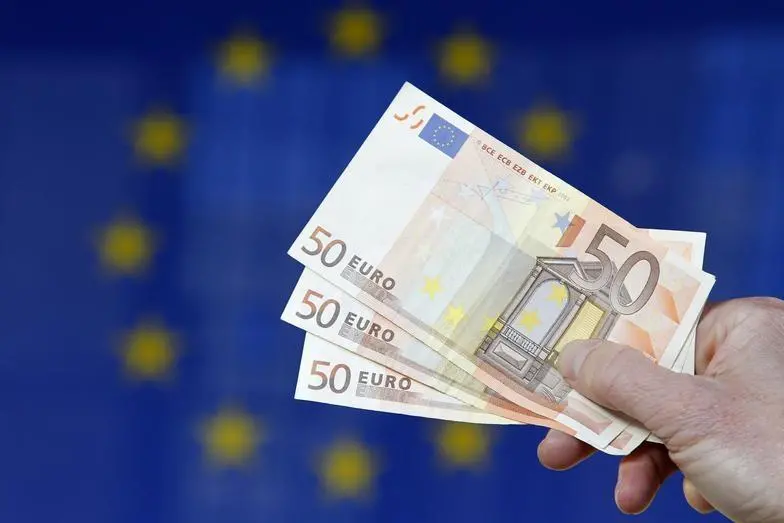PHOTO
Euro zone bond yields were stable on Friday after a turbulent week as a temporary pause in some of U.S. President Donald Trump's broader tariffs did little to quell market worries about a U.S.-China trade conflict and the risks to the global economy.
As investors sold U.S. bonds and the dollar, the premium that holders of Treasuries demand to hold U.S. debt rather than German Bunds rose by the most in a week since the 1990s.
The German 10-year bond yield, the benchmark for the euro zone bloc, was little changed at 2.584%.
Germany's bond market sat out a global selloff on Wednesday, when U.S. yields surged and the gap between the German and U.S. 10-year yields widened.
"If we look at how the German bond market has evolved this week, it's been, I would say, reassuring that it hasn't been fully caught in what's been happening in the global markets and that is kind of an exception," Jan Von Gerich, chief market strategist at Nordea, said.
"The moves that we've seen in other markets haven't really been ...illustrative of a healthy and well-functioning market."
On Friday, selling in U.S. bonds resumed, with the 10-year note yield rising to 4.427% and the spread between German and U.S. 10-year Treasuries widening to 183 bps. It has risen by more than 40 bps in this week alone, its largest such increase in at least 30 years, LSEG data shows.
Bunds rose only 3 bps this week, as investors flocked to safe havens beyond the U.S. market, given the aggressive selloff in Treasuries.
Italy's 10-year yield was higher by 6 basis points at 3.866%. The gap between Italian and German 10-year bunds, a gauge of the premium that investors demand to hold Italian debt, widened to 128 bps.
With higher U.S. tariffs postponed by 90 days, European Union finance ministers will on Friday discuss how to use that time to reach a trade deal with Washington and to coordinate their efforts to handle higher levies if they are unsuccessful.
The European Central Bank, meanwhile, will hold its next policy meeting on Thursday.
Money markets are pricing in a 99% chance the bank will decide on a quarter point rate cut, and that the main rate will be roughly 1.7% in December.
Germany's two-year bond yield, which is more sensitive to ECB rate expectations, was 5 bps lower at 1.766%.
German inflation eased to 2.3% in March, the federal statistics office said on Friday, confirming preliminary data. (Reporting by Yadarisa Shabong in Bengaluru; Editing by Amanda Cooper, Gareth Jones and Barbara Lewis)
Reuters





















